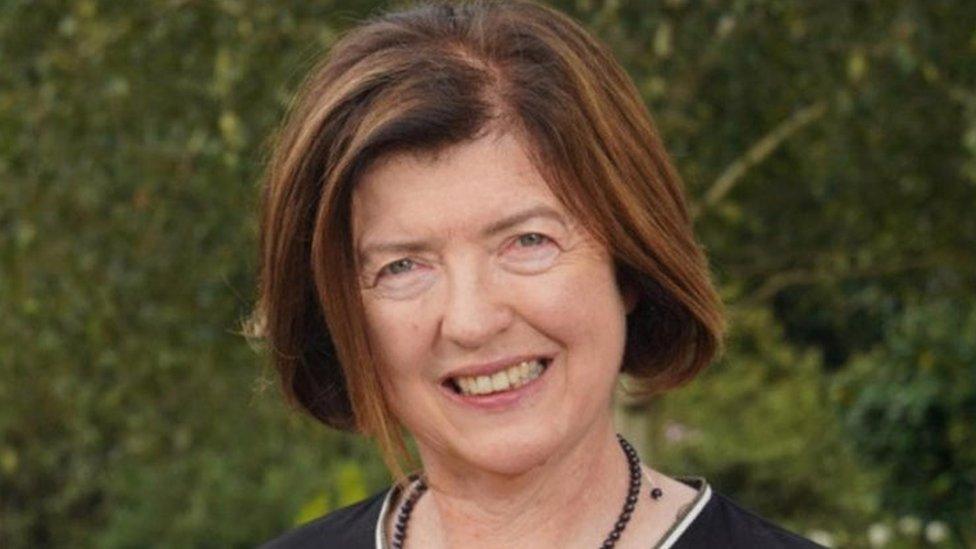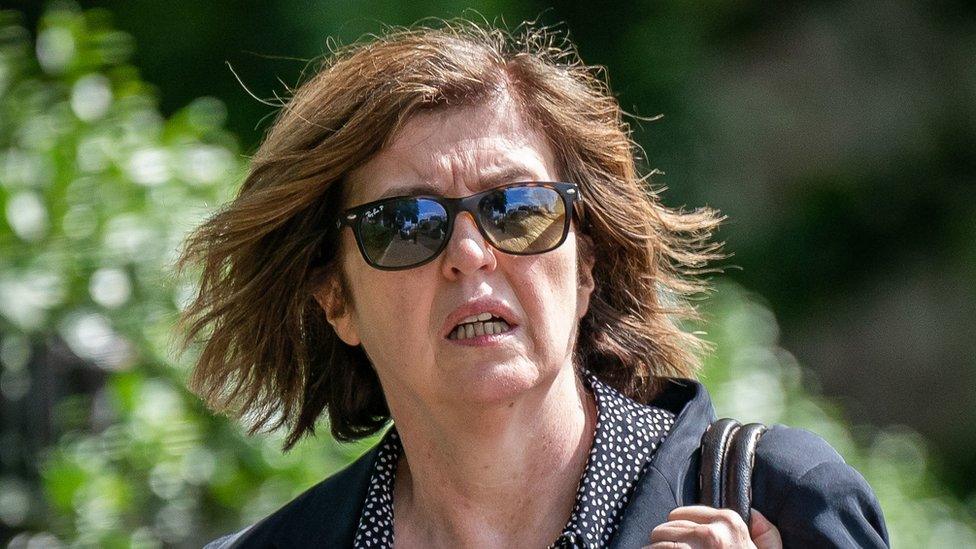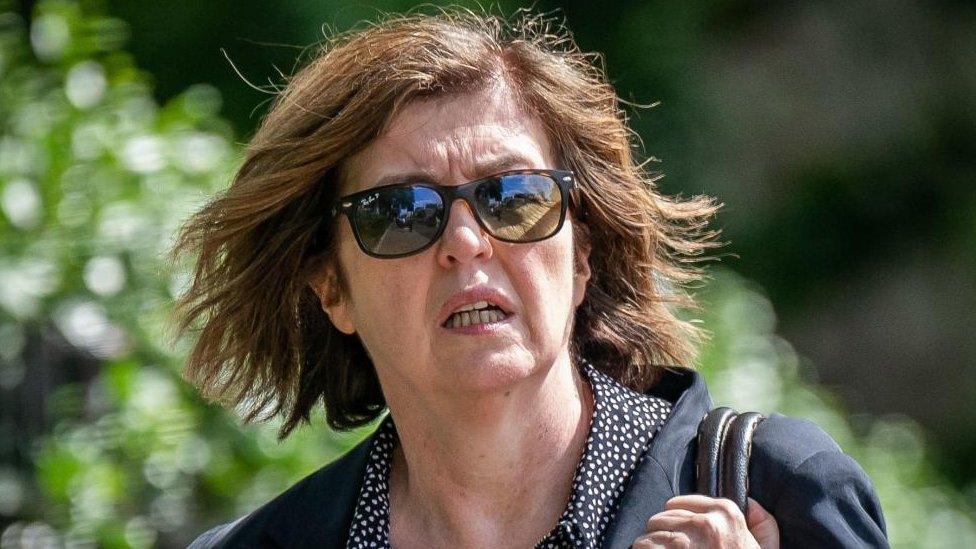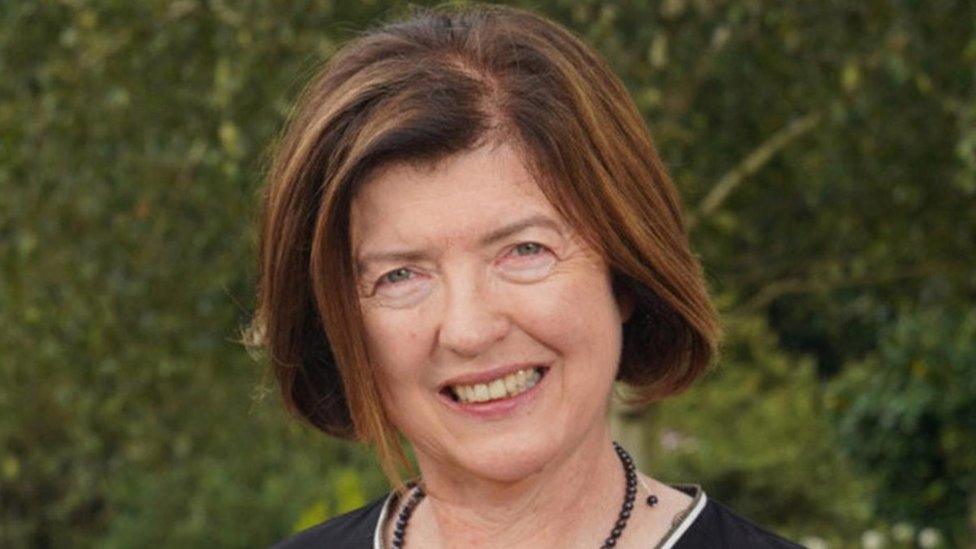Sue Gray chose not to engage with Labour job inquiry, minister says
- Published

Partygate investigator Sue Gray was offered a job as the Labour leader's chief of staff in March this year
Former civil servant Sue Gray has chosen not to be interviewed as part of a Cabinet Office inquiry into talks with Labour about a senior party role, a minister has said.
Ms Gray quit the civil service after being offered a job as Labour leader Sir Keir Starmer's chief of staff.
A government appointments committee is investigating whether she breached civil service rules over the move.
Earlier, Sir Keir said he was confident Ms Gray had not broken any rules.
Ms Gray has held some of the most senior roles in the civil service and is best known for leading an investigation into the Partygate scandal, which contributed to Boris Johnson's downfall as prime minister last year.
She ended her decades-long career with the civil service in March, as Labour announced the party had offered her one of its most senior jobs ahead of the next general election.
The Conservative government said the situation was "unprecedented" and ordered an internal investigation into the circumstances of her resignation.
On Tuesday, Deputy Prime Minister Oliver Dowden issued a written statement, external to the House of Commons containing an update into the circumstances leading to Ms Gray's resignation.
In the statement, Mr Dowden said: "Ms Gray was given the opportunity to make representations as part of this process but chose not to do so."
Mr Dowden added: "I am unable at this stage to provide further information relating to the departure of Ms Gray whilst we consider next steps."
The internal investigation by the Cabinet Office is separate to an inquiry by the independent Advisory Committee on Business Appointments (Acoba), which will provide the final judgement on Ms Gray's departure.
Acoba is to recommend how long Ms Gray should wait before being allowed to take up the job with Labour.
The BBC has been told that Ms Gray's focus is on Acoba and she has "fully cooperated" with them and "given them all the details requested".
Dave Penman, leader of the FDA union, which represents civil servants, told Times Radio he understood why Ms Gray was prioritising Acoba rather than the Cabinet Office's internal investigation.
"Acoba is really the real deal when it comes to this and who's going to make a decision," Mr Penman said. "And it really should be, because it isn't doing it for political ends."
Appointments inquiry
Under the civil service code, officials of Ms Gray's seniority must wait a minimum of three months before taking up outside employment.
Senior civil servants, as well as ministers, are expected to check with Acoba about any employment they wish to take within two years of leaving government.
Acoba provides advice and can recommend a delay of up to two years in starting a new job, but it has no power to block appointments.
However, Labour has said the party and Ms Gray will abide by its recommendations.
A long delay could hamper attempts to have Ms Gray in place well before the next general election, which is widely expected next year, to help Labour prepare for government if it wins power.
Earlier, Sir Keir accused the government of using the issue to try and deflect from the local election campaign, saying it should be focusing on the cost-of-living crisis instead.
"[The public are] not sitting at their breakfast talking about Sue Gray, they're talking about their bills," he told the BBC.
Ms Gray was thrust into the limelight after leading a government investigation into allegations of parties being held in Downing Street during the coronavirus lockdown.
She has held a number of senior positions, including head of the government's propriety and ethics team, since joining the civil service in the 1970s.
Ms Gray resigned from the post of second permanent secretary in the Department for Levelling Up, Housing and Communities in March, after it emerged she had been offered a job with Labour.
Labour has insisted it did not approach Ms Gray until after her Partygate report was published.
But Mr Johnson and his allies have seized on Labour's job offer to claim Ms Gray's investigation when he was in power was an attempt to smear him.
Her report was critical of the senior political and civil service leadership, saying they "must bear responsibility" for the culture at No 10 during Covid lockdowns.
Related topics
- Published6 March 2023

- Published2 May 2023

- Published2 March 2023
